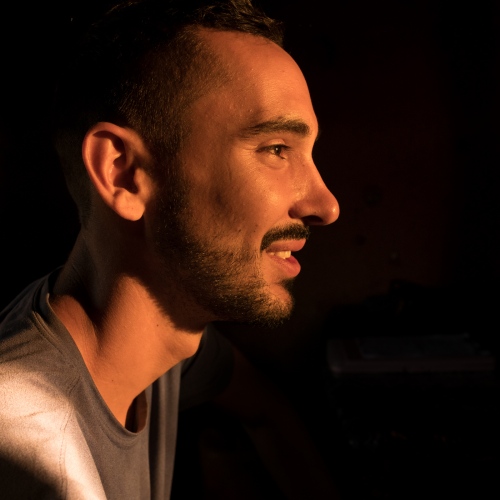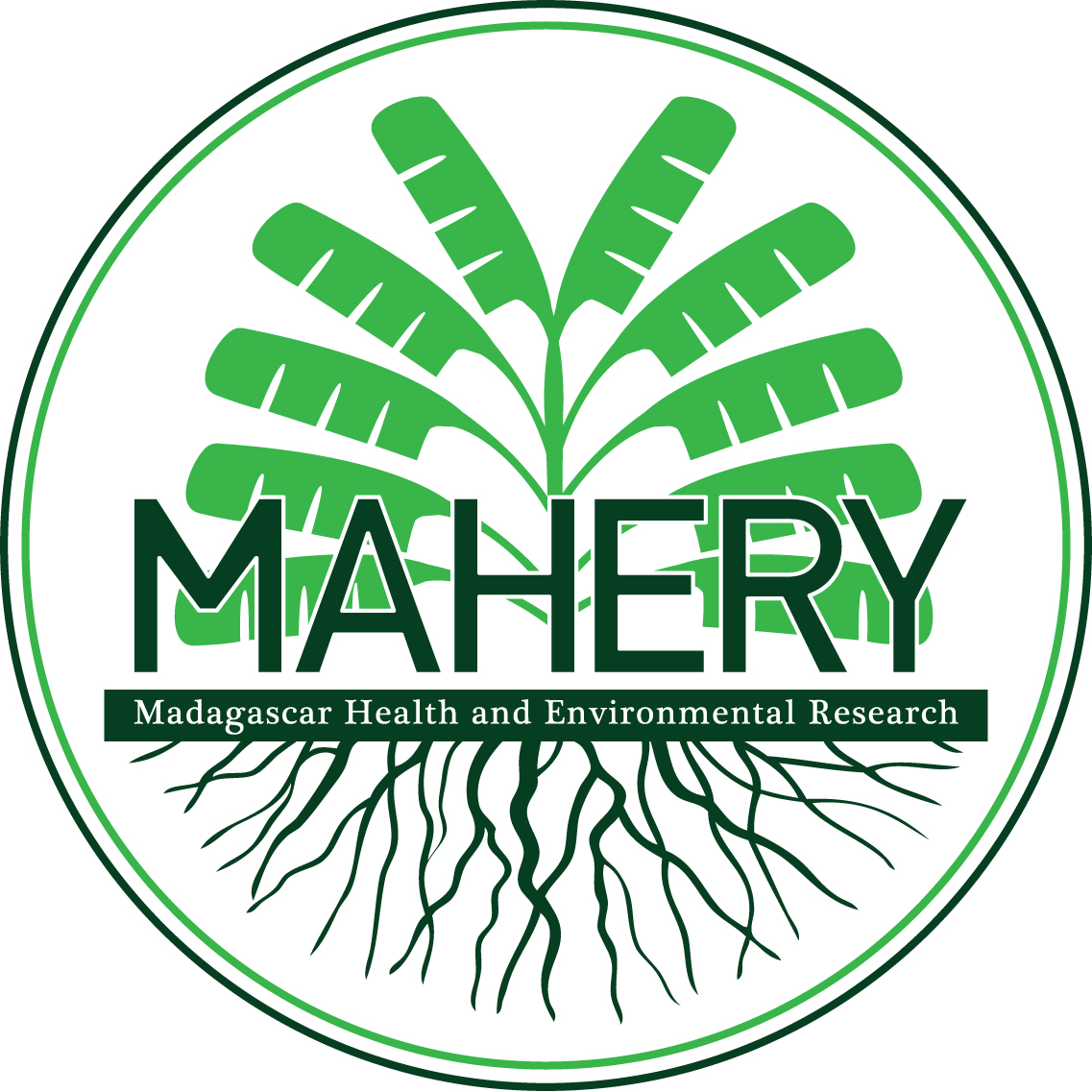
Benjamin Rice is currently a PhD candidate in the Department of Organismic and Evolutionary Biology at Harvard University. He began working with the MAHERY team in Madagascar in 2014, and has focused on the ecology and evolution of malaria transmission in rural communities. In conjunction with Dr. Golden (his doctoral co-advisor), he was the primary lead of a cross-sectional study of 24 communities across four regions in Madagascar (enrolling approximately 6,000 subjects) to study the intersection of environmental change, nutritional status, and disease emergence. Ben also serves on the MAHERY board as the Secretary. Please see below for a brief description of his background, research interests, motivation, and future goals.
Ben is originally from Denver, Colorado, born to parents that engrained globe-trotting, adventurous eating, and appreciating the natural wonders of the world as important habits from an early age. He studied microbiology and global health at Arizona State University and upon graduating in 2012 did a post-baccalaureate research fellowship with the National Institutes of Health (NIH) studying the genetics of the parasites that cause malaria. After which, Ben began studying ecology and evolutionary biology at Harvard University, co-advised by Dan Hartl and Christopher Golden, again focusing on malaria.
His research interests, broadly, stem from two observations.
The first observation is that global hotspots of biodiversity are geographically congruent with global hotspots of poverty and disease. This means that the communities living in and by those areas where the products of evolution are most spectacularly displayed, and most in need of preservation, often face a disproportionate burden of illness. This is abundantly clear in Madagascar where remarkably high diversity and endemism in its flora and fauna is paired with some of the highest global rates of malnutrition, poverty and environmental degradation.
The second observation is that the same evolutionary and ecological principles that are used to study the diversity of life can be used to better understand the pathogens responsible for the greatest challenges to human health. This is exemplified by malaria, where recent advances in evolutionary genetics and genomics analysis have allowed new ways to monitor malaria transmission and its control.
Ben is motivated to use malaria in Madagascar as a model to: (i) apply these new advances in genetic analysis of pathogens in Madagascar, (ii) further expand the toolkit of genetic and epidemiological analyses available so that we can better identify and understand the ecological drivers of disease transmission, (iii) enrich data streams so as to more rapidly monitor and improve disease control measures, and (iv) dramatically increase our awareness of the causes and consequences of poor health outcomes in the remote communities of Madagascar - communities that remain understudied or unstudied despite their crucial role to conserving the country's tremendous biodiversity.
In short, the objective of Ben's research and his work with MAHERY is to move us towards a time when hotspots of biodiversity such as those in Madagascar are no longer also hotspots of destitution and disease - to a time when the richness of the plant and animal life surrounding communities is not a stark contrast to their poverty.
When not studying or working, Ben enjoys eating dumplings with friends, improving his Malagasy, and following in his parents' globe-trotting footsteps.
Benjamin Rice dia mamita ny Doctorat ao amin"™ny Department of Organismic and Evolutionary Biology ao Harvard University. Nanomboka niasa tamin"™i MAHERY izy ny taona 2014 ary fikarohana momba ny ekí´lijia sy eví´losií´nan"™ny tazo moka any ambanivohitra no tena ataony. Izy, niaraka tamin"™i Dr. Golden (mpanoro hevitra azy amin"™ny fanomanany ny mari-pahaizana Doctorat) no nitarika ny tetikasam-piarohana mikasika ny fifandraisan"™ny fiovaovan"™ny toetrandro, ny fanjariantsakafo sy ny aretina tamin"™ny taní na 28 nanerana ny faritr"™efatra teto Madagasikara (izay nandraisan"™ny olona anjara eo amin"™ny enina arivo eo eo). Ben dia mpikambana ao amin"™ny biraon"™i MAHERY ary mitana ny andraikitra Mpitantsoratra.
Lehibe tao Denver, Colorado i Ben ary saika notezain"™ny ray aman-dreniny nitety firenena maro ka nahitany ny hakanton"™izao tontolo izao tamin"™ny fahakeliny. Nianatra mikrí´bií´lí´jia sy fahasalam-bahoaka tao amin"™ny Arizona State University (ASU) izy ary rehefa vita ny fianarany tao ASU tamin"™ny 2012 dia nanao fikarohana (research fellowship) tao amin"™ny National Institutes of Health (NIH) izy izay nandalinany mikasika ny fototarazon"™ny otrikaretina mahatonga ny tazo moka.
Mizara roa ny ny tetikasam-pikarohana izay ataony
Voalohany dia saika ireo toerana manankarena ara-javaboary no ahitana fahantrana sy aretina be indrindra. Izany dia midika fa ireo olona mipetraka manodidina an"™ireo toerana ireo no tena handairan"™ny valan"™aretina. Hita mibaribary aty Madagasikara izany tranga izany satria saika manodidina ireo toerana ahitana karazan-zavamaniry sy bibidia maro no tena ahitana ny tsifanjariantsakafo, fahantrana ary ny fahasimban"™ny tontolo iainana.
Faharoa dia hita fa ireo hevitra mikasika ny ekí´lijia sy eví´losií´na dia afaka ampiarina amin"™ny famantarana ireo otrikaretina mahatonga ireo olana ara-pahasalaman"™ny olombelona. Tazo moka no ohatra momba izany satria ireo fikarohana mikasika ny genetika sy ny genomika dia afaka entina hanadihadiana ny tazo moka sy ny fomba hamongorana azy.
Ny tanjon"™i Ben amin"™ny fikarohana izay ataony momba ny tazo moka eto Madagasikara dia (i) ny mba ahafahana mampihatra ny fikarohana momba ny fototarazo amin"™ny otrikaretina eto Madagasikara, (ii) ny famolavolana fomba vaovao hianarana ny fifandraisan"™ny ekí´lijia sy ny aretina samihafa, (iii) ny fampitombana ireo antontan"™isa momba ny tazo moka mba ahafahana mifehy azy amin"™ny alalan"™ireo tetikasa samifaha ary (iv) ny fanentanana ny antony mahatonga ny tazo moka sy ny vokadratsiny amin"™ny fahasalaman"™ny mponina mipetraka any ambanivohitr"™i Madagasikara. Mbola vitsy anefa ireo toerana any an-kebakeba-tany sy lavitra nanaovana fanadihadiana mikasika ny tazo moka kanefa dia manana anjara toerana lehibe amin"™ny fiarovana ny zavaboarin"™i Madagasikara ny mponina mipetraka manodidina azy ireo.
Amin"™ny ankapobeny ny tanjon"™i Ben amin"™ny fikarohana izay ataony miaraka amin"™i MAHERY dia ny hanampiana ny toerana, toy ny eto Madagasikara, tsy ho toerana ahitana aretina sy fahantrana lalina be intsony. Amin"™izay mba lasa toerana manankarena amin"™ny lafin"™ny zavamaniry sy bibidia fa tsy toerana ahitana aretina sy fahantrana lalina.
Rehefa tsy mianatra na tsy miasa i Ben dia tia mihinana sakafo toy ny "dumplings" miaraka amin"™ny namany, mianatra ny teny Malagasy na mitsangatsangana. Izy koa dia malaza amin"™ny fihinanam-bary maro be.
